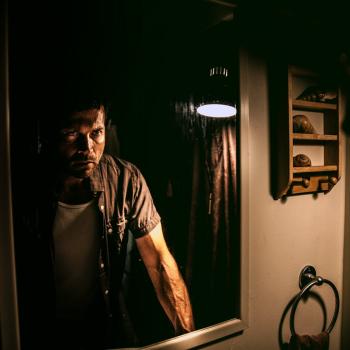Peter Francis and I spoke in his office at the Library after he had spent the morning talking about the Library's future with its Board of Regents, and I working in the Library on my forthcoming book on post-9/11 religion and culture.
Garrett: If Americans know about Gladstone, they know that he is a great man, like Lincoln, Jefferson, Washington. Gladstone is a figure who in his own way is equally important, although I doubt most Americans know much about him. Can you help American audiences understand why Roy Jenkins called Gladstone the "most quintessential prime minister," and why he was and is such a compelling figure in British politics?
Francis: That's not only a question for people in the States, but for people in the U.K. as well. Whenever people are interviewed in the Houses of Parliament, it's done in the central lobby, and very typically it's done in front of the statue of Gladstone. So people know he's a great figure, and his statue is in all the capitals of the United Kingdom, but I think they would have very little sense of what he was and what he did. People would think of him as a very dull but worthy person, and that's a long way from the truth.
We should remember him for all sorts of reasons, for instance, universal primary education. That's due to Gladstone. The shift from a democracy being run by the aristocracy to a meritocracy, that's due to Gladstone. The whole concept of human rights—he was certainly not the inventor of human rights, but he was one of the prime movers in our modern concept of human rights, and the sense of "crimes against humanity"—that's a phrase that originates with Gladstone.
Garrett: Throughout his life—and on into the creation of this Library, which flourishes a hundred years after his death—Gladstone was serious about his faith, and about understanding his faith. In American politics these days, we certainly have plenty of people on both sides of the aisle whose politics emerge out of their faith understandings. How did Gladstone see the relationship between his religious faith and his vocation as a politician?
Francis: I think that's really the key to Gladstone, certainly the key to the social justice side of Gladstone. It's the reason he supported the Armenians and Bulgarians against Turkish atrocities and ethnic cleansing; it stemmed from his belief in the rights of each and every human being. The reason he supported political prisoners in Italy—same thing. And the reason he carried on in this belief that he should bring justice to Ireland stemmed from his belief in doing the right thing. His foreign policy was very much geared not to Empire, but to doing the right thing. Gladstone felt he had been put into this position by God, and so he had to pursue these policies even if they meant political failure, as it certainly did in terms of Ireland.
Garrett: Gladstone left his major bequest to create this Library so that people could study the intersection between theology and politics. Could you talk about why this place is a unique resource in terms of the things that Gladstone hoped for it?
Francis: He originally called it "Monad," meaning "one" or "oneness," and I think that is the key to his understanding of this place. He believed—firmly believed—that in the end, all truth was one, and you had only to work solidly and seriously and somehow you would be contributing to that truth. He wanted this Library, yes, to have theologians and clergy people, and be primarily for them, but enough of the other disciplines to contribute to that wider truth. So it was important to him that it wasn't just for Anglicans, Episcopalians, but all Christian denominations, and not just for Christians, but all faiths, and not only all faiths, but all ideologies. In the end, they're all contributing to that one truth. I suppose in a way he's creating a sort of mini-university of the liberal arts.
Garrett: I see those things played out in some of the projects the Library is involved in—the Writer-in-Residence project, the Islamic reconciliation, all part of being involved in a larger conversation. In the day-to-day workings of the Library how do you see the big hopes that Gladstone placed in it coming to life?
Francis: We work hard to make the Library a relaxed place, sort of congenial and convivial so that conversations can happen. Over a gin and tonic, or sitting by the fire, or over a meal, people talk with enthusiasm about whatever they're studying, and have a rejoinder to what the person next to them is saying, and so it grows, the sparks that fly from all of these people with their various enthusiasms. It goes back to the word "liberal." That's what "liberalism" means in this context, a respect for other people's ideas, and a willingness to learn from other people's study, other people's knowledge. Whether people know it or not, I think they're entering into a sort of liberal event when they come here.





